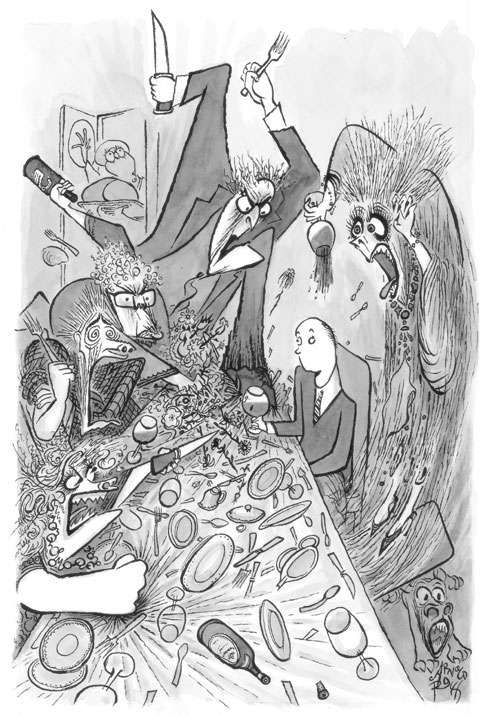‘Hate Crime’ Is Only a Step Away From Thoughtcrime

Punishing people, even criminals, for ideas is inimical to the American tradition of free speech.
By
Myron Magnet
Jan. 1, 2020
Does it make sense that a person can burn an American flag with impunity but not a gay-pride flag? Earlier this month, a judge in Story County, Iowa, sentenced Adolfo Martinez to a preposterous 16 years in prison for swiping the rainbow flag from a nearby church and burning it in front of a strip club.
Mr. Martinez, 30, has a long criminal history, which partly explains the long sentence. He had two felony convictions, and Iowa law deems any three-time felon an “habitual offender,” subject to enhanced sentencing. But a jury convicted Mr. Martinez of three misdemeanors—third-degree arson, for which the maximum penalty is two years in prison, along with third-degree harassment and the reckless use of fire, each subject to a maximum one-year term.
Mr. Martinez complicated his own defense by telling a local TV station that he had torched the flag because he didn’t like gay people and had “burned down their pride, plain and simple.” In response, the judge increased the misdemeanor arson charge to a hate-crime charge—a felony, normally carrying a maximum of five years in prison. So what seemed on its face to be a minor infraction suddenly became Mr. Martinez’s strike three, inflating his five-year maximum to 15, plus an extra year for the reckless use of fire.
The absurdity of the sentence points up the larger absurdity of hate crimes as a class of criminal offense. Burning an American flag, the Supreme Court says, is free speech. The First Amendment allows you to register disapproval of the government in whatever expressive way you choose, though watch out for the arson laws. Calling the cops “pigs” or singing “F— da Police”? Also no problem, legally speaking. Unlike Canada, Europe and American colleges, the U.S. doesn’t have “hate speech” laws.
The idea that free speech means free speech is a jewel of American exceptionalism. It’s odious and moronic to deny the Holocaust, but it isn’t—and shouldn’t be—a crime. The New York Times didn’t clutch its pearls when Hillary Clinton dismissed Donald Trump’s supporters as a “deplorables” who are “irredeemable” and “not America.” Nor did the guardians of correct opinion blanch when Barack Obama disparaged a large number of Americans as troglodytes clinging to their guns and religion. Rep. Ilhan Omar is entirely at liberty to explain away support for Israel as being “all about the Benjamins, baby.” Robert De Niro is similarly free to give the finger to Mr. Trump and his supporters. All this is as American as apple pie, if less appetizing.
Designating an offense as a hate crime criminalizes not the action but the idea that supposedly impelled it. Here we are but a step away from the “thoughtcrime” George Orwell described in “1984.”
Properly, the law should ask only two questions about your state of mind. First, do you have the faculty of reason that allows you to distinguish right from wrong? Second, did you intend to do the crime you committed? Beyond that, as James Madison repeatedly insisted, you have freedom of conscience. You can believe whatever you want, however politically incorrect—especially since today’s political correctness may be deemed tyranny in retrospect. In a far-flung republic composed of various subgroups, multiple viewpoints and interests are bound to proliferate. Under such circumstances, toleration is required.
The New York area has experienced a rash of what Gov. Andrew Cuomo denounces as “hate crimes.” Swastikas have been scrawled in largely Orthodox Jewish neighborhoods. Adolescent thugs have assaulted Hasidim on the streets. In mid-December three customers and a cop were murdered in an attack on a Jersey City, N.J., kosher market. On Saturday, a madman stabbed five people at the home of a rabbi in Monsey, N.Y., north of the city.
I abhor these offenses, but I don’t see what is gained by Mr. Cuomo’s apoplectic imprecations. These outrages don’t presage pogroms, and it seems a fair bet that the perpetrators don’t know what the Holocaust was. Did it matter to the victims whether their assailants attacked them to steal their money, express their hostility, or take advantage of their vulnerability? Surely the solution isn’t relabeling but rather energetic and activist policing of the kind that discouraged violent acts by ill-socialized adolescents and street-dwelling crazies in New York for 20 golden years. Proactive policing also largely rid the streets of graffiti, offensive symbols included.
Let cops vigorously enforce existing laws against assault, harassment, vandalism, arson and the like. If the harassment amounts to an organized campaign of repression rather than random acts of delinquents or lunatics, then it’s time to dust off the Reconstruction Era’s antiterrorism laws. No group, whether Klansmen or members of an antifa mob, should be allowed to threaten or brutalize people.
It’s a sad reflection on the failure of New York’s current political culture, with its recent soft-on-crime legislation and abhorrence of common-sense policing, that ordinary people must think hard about the less appealing alternative of pressing for more teeth in the Supreme Court’s Heller decision, upholding citizens’ Second Amendment right to keep and bear arms for self-defense.


